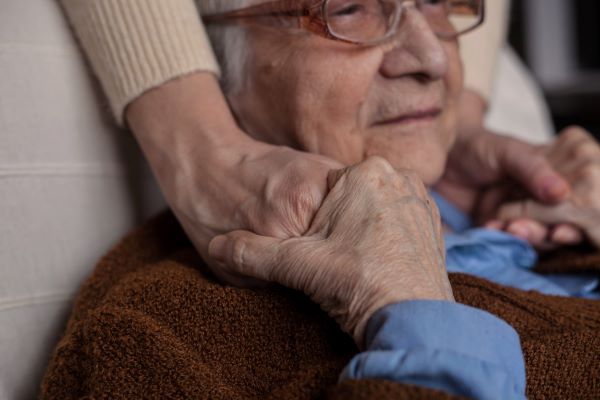The Internal Revenue Service (IRS) has released its tax inflation adjustment figures for tax year 2025.

The Importance of Creating a Legal Document Reflecting Your Final Healthcare Wishes
You may have seen a friend or loved one suffer for a long time with Alzheimer’s. In the final stages of this and other dementia diseases, there comes a time when the person can no longer speak, recognize loved ones, or move purposefully. With that poor quality of life, many would choose to stop hand-feeding and hydration and to allow the dying process to begin. However, long before that time arrives, the person in question has lost the capacity to make and to express that decision. If the person no longer has an effective way to be heard, institutions where such people are usually confined are legally and morally obligated to continue hand-feeding and hydration until the bitter end.
That end can come years and years later. A terrible characteristic of such diseases is that people may have lost all that made them who they once were and, yet, they remain physically healthy enough to continue, in that absent state, for many years.
Existing health-care powers of attorney usually only rule out artificial nutrition and hydration, like feeding tubes and IV. Until recently, the documents did not include hand-feeding. Thus, despite the person’s healthcare agent requesting otherwise, caregivers would be required to continue cajoling, persuading, and insisting that the person continue to be fed by hand. This process would rely on a primitive reflex in which touching the spoon to the corner of the person’s mouth would result in an involuntary opening of the mouth. This could be misinterpreted as a desire to eat, and the sad situation could drag on and on without any way to intervene.
In especially tragic cases, where the person’s swallowing reflex has become diminished, the person could aspirate food and fluid into the lungs, resulting in pneumonia.
Thanks to pioneering efforts by End of Life Washington, and End of Life Choices in New York, a new document has emerged to supplement existing healthcare directives and to specifically address this issue. Where the person has become unable to feed herself, can no longer use the toilet, and can no longer move or speak or recognize loved ones, the person may have expressed, in this supplemental document, that hand-feeding be stopped – or that feeding is restricted only to foods that the person demonstrably enjoys. The document further requests that the person be kept comfortable and out of pain through careful medication and other measures to relieve any anxiety, agitation, or insomnia.
Especially when the dementia diagnosis is first made, and while the person still has the capacity to make and communicate healthcare decisions, this supplemental healthcare directive must be considered. Creating a video expressing these wishes is also a very good idea. That way, at a time when the person has become only a silent immobile presence in bed, caregivers can see the person as he or she used to be, expressing wishes while the person was still able to communicate with them.
Please give us a call if you would like to talk about your wishes and how to create a legal document reflecting those wishes. Please contact our New York office or call us at 607-271-9270.
